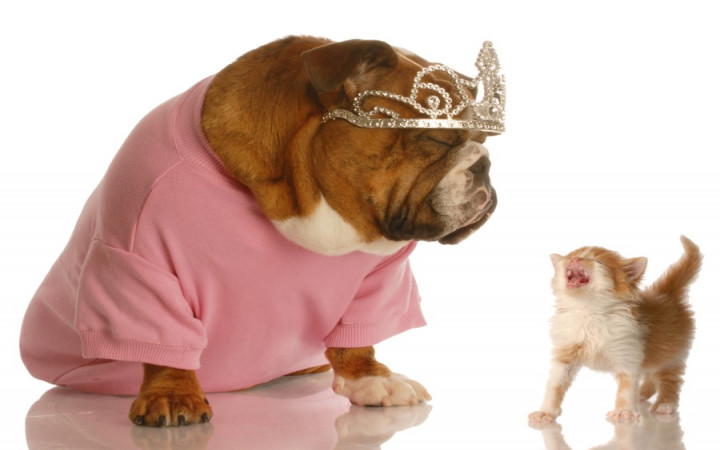Today’s Wonder of the Day was inspired by katherine. katherine Wonders, “Do all cats have a different personality?” Thanks for WONDERing with us, katherine!
Do you have a pet at home? Many children have a dog that they love to play with when they get home from school. Others might have a cat that they snuggle with when they go to bed at night. Still others may have a more unique pet, such as a fish, a turtle or a sugar glider!
Do you like to talk to your pet like it was a sibling? Does your pet “talk" back to you? How does it communicate with you about its wants and needs? Has it ever acted somewhat like a human being?
Does your pet ever act in ways you can predict? Maybe it has an attitude from time to time? Or perhaps it likes to tease you when you're playing? Or does it show you love in a special way that's just too cute for words? If so, then you'd probably agree that your pet definitely has a personality that's all its own.
Personality is something that we usually attribute to other human beings. You may be funny. Or smart. Or caring. Or mean. Or sad. There are as many different personalities as there are people in the world. It's how we describe the ways in which people usually behave.
Scientists have learned that many animals, including common pets like dogs and cats, can exhibit personality traits in similar ways that humans do. For example, dog owners can see the happiness in their pets' eyes — and tails! — when they arrive home after school or work. Likewise, they can see the disappointment in their eyes when they don't get to go with the rest of the family for a ride in the car.
Pets can be much more than just happy or sad, though. Like humans, they can display a variety of personality traits. Have you ever met a cat you could describe as irritable or neurotic? How about a dog that's adventurous or happy-go-lucky?
Scientists who study animal personality have had to overcome many doubters within the scientific community. After all, dogs and cats can't tell us about their feelings or explain their behavior. Instead, scientists must rely on detailed observations over time.
Their work is slowly gaining acceptance, though. Plus, there is more than enough anecdotal evidence from pet owners, who are perhaps the most qualified to discuss their own detailed observations over the course of many years with their pets.
Some scientists hope that their work will one day have very practical applications. For example, if scientists can learn more about dog personalities, they may be able to help people choose the right dog as a pet. More importantly, though, they might also be able to identify dogs that would make particularly good workers, such as guide dogs and search and rescue dogs.
Standards: CCRA.L.3, CCRA.L.6, CCRA.R.1, CCRA.R.2, CCRA.R.4, CCRA.R.10, CCRA.W.2, CCRA.W.4, CCRA.SL.1, CCRA.SL.2




